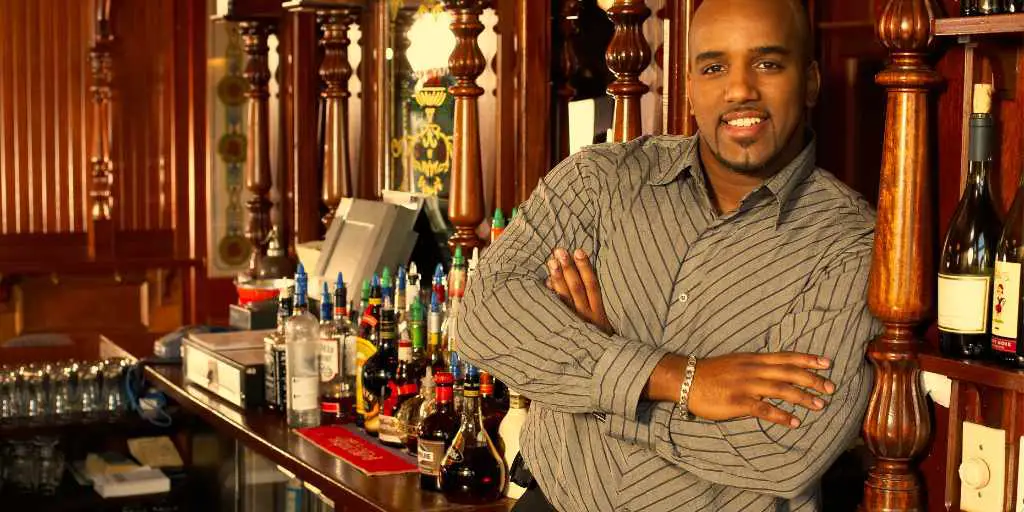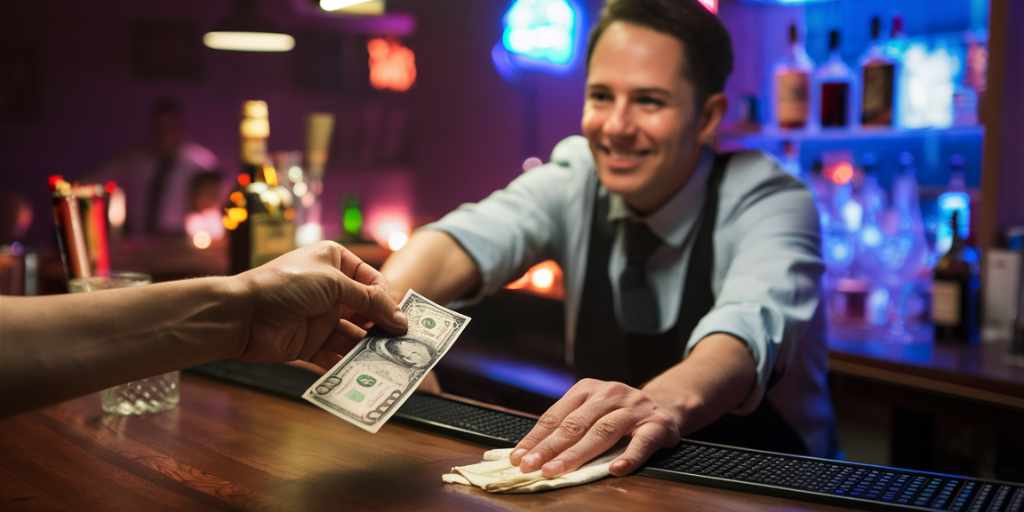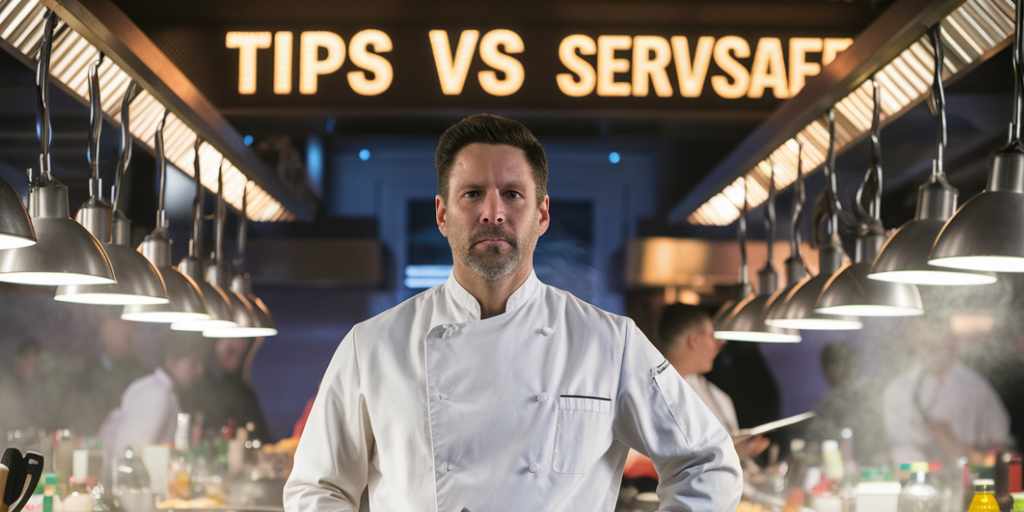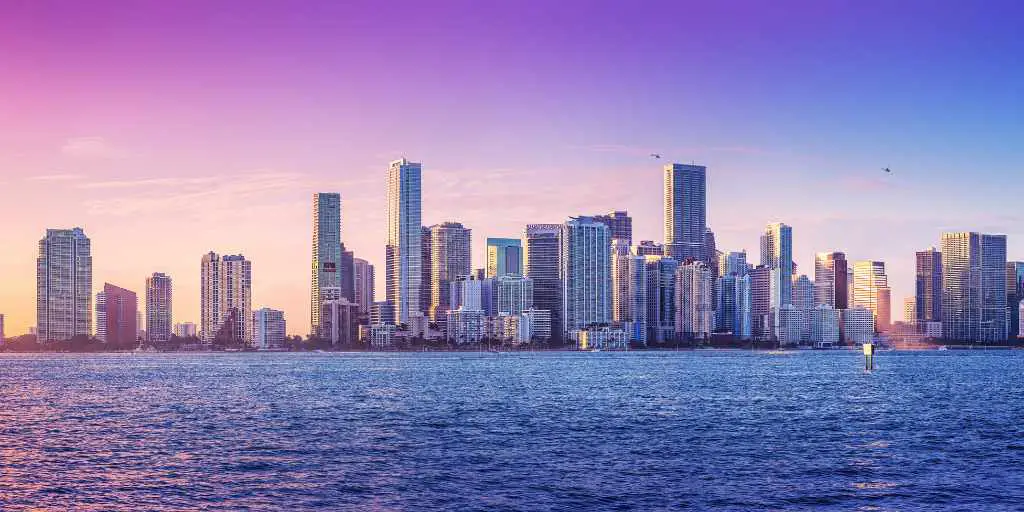Bartending in New York City is a thrilling experience, but as a bartender, the question looms: Do bartenders need a food handler’s card in NYC? In this guide, we’ll delve into the details, answering this question and exploring the benefits, costs, and processes associated with obtaining a food handler’s card in The City That Never Sleeps.
Key Takeaways
- Legal Obligation and Professional Edge: While a food handler card is legally required in many places, obtaining one voluntarily can set you apart professionally.
- Financial Considerations: Understand the costs of obtaining a food handler card, from course fees to additional expenses.
- Time Commitment: In the fast-paced world of bartending, time is precious. Explore the time commitments required to obtain your food handler’s card and plan accordingly to integrate it into your busy schedule seamlessly.
- Proactive Professionalism: Voluntarily obtaining a food handler’s card can set you apart in the competitive bartending world. Explore the benefits and consider the proactive approach to professional development.
Are Bartenders in New York Required to Have a Food Handler’s Card?
Yes, like many other states, including Texas and California, all food handlers (including bartenders) have to take food handler training.
Also, New York State laws require that when the establishment is operating, at least one supervisor certified in food protection is present (source).
What are the benefits of obtaining a food handler card as a bartender?
Acquiring a food handler’s card as a bartender goes beyond meeting legal obligations. It can elevate your career by opening up new job opportunities, enhancing your credibility, and ensuring customer satisfaction through your commitment to food safety.
How Much Does a Food Handler’s Card Cost?
While ensuring food safety is paramount, understanding the financial commitment is crucial. Let’s break down the costs of obtaining a food handler’s card in NYC, from course fees to additional expenses.
How to Get Your New York Food Handler Card
Embark on obtaining your New York food handler card with our detailed guide. From application processes to exam details, we provide a roadmap to guide you through the process efficiently.
New York Food Handlers License Requirements
Navigating through the specific requirements set by New York City for obtaining a food handler’s license is crucial. From eligibility criteria to documentation, ensure you meet all the necessary standards before diving into the training.
How long does it take to get a food handler’s card?
The food handler training course is around 16 hours (source), This include the test that you must pass with 70% to receive your certification.
How Much Will A Food Handler Card Course Cost
You can take the Food Protection Course in a classroom or online for free at the Department of Health website. However, an exam is required; as of 2023, it costs $24.60 to take the final exam (70% is the passing grade) to receive your certification.
Should you get a food handlers card even if it is not required?
Voluntarily obtaining a food handler’s card can set you apart in the competitive bartending world. As well, many states require bartenders to have this training, so you’re ahead of the game if you plan to work in another state or move up in your organization.
What Can I Expect to Learn from Food Safety Training
Embarking on food safety training is not just a regulatory requirement; it’s an investment in your professional competence and the well-being of those you serve. In New York City, the training covers a comprehensive range of topics to ensure that food service workers, including bartenders, are well-equipped with the knowledge and skills necessary for safe food handling.
Hygiene Practices
Maintaining impeccable personal hygiene is non-negotiable in the bustling environment of a New York City bar. Food safety training emphasizes the importance of frequent handwashing, gloves, and proper grooming. Understanding the critical role personal hygiene plays in preventing the spread of contaminants is fundamental.
Preventing Foodborne Illnesses
With its diverse culinary scene, New York City demands a heightened awareness of potential foodborne illnesses. Food safety training educates bartenders on the sources and symptoms of common foodborne illnesses, fostering a proactive approach to prevention. This knowledge is invaluable in preserving public health and the establishment’s reputation.
Safe Handling of Food Equipment and Surfaces
The city’s stringent regulations extend to properly handling food equipment and surfaces. Food safety training in NYC covers correctly cleaning, sanitizing, and maintaining utensils, cutting boards, and other equipment. Understanding the potential cross-contamination risks is essential for maintaining a safe food service environment.
Temperature Control in Food Preparation
Given the varied culinary offerings in the city, understanding temperature control in food preparation is paramount. Food safety training educates bartenders on the critical temperatures for storing, cooking, and serving food. This knowledge ensures that every dish served meets the standards for both taste and safety.
Compliance with Local Laws and Regulations
Navigating the intricate web of local laws and regulations in New York City is integral to the success of any food service establishment. Food safety training provides bartenders a thorough understanding of these regulations, ensuring compliance with the city’s health code. This knowledge avoids legal complications and contributes to a positive reputation for the establishment.
Handling Unpackaged Food
In a city known for its diverse street food culture, bartenders may encounter unpackaged food items. Food safety training covers the safe handling of such items, emphasizing the importance of preventing contamination during serving or handling. This knowledge is particularly relevant when food trucks or pop-up vendors are common.
Interaction with Health Inspectors
Understanding how to navigate inspections by health officials is a crucial aspect of food safety training in NYC. Bartenders learn the proper procedures during inspections, ensuring the establishment complies with health department standards. This knowledge contributes to a smoother inspection process and fosters a culture of continuous improvement.
How to Keep Your Food Handler Card Up to Date
In New York, food handler cards last 2-3 and must be renewed before expiring (source).
Can I use a food handler card obtained in one state in another state?
For bartenders who desire mobility, explore the portability of your food handler card. From what we’ve found, generally, each state has its certification program. Much like responsible alcohol service, the topics covered will be similar.
Do bartenders need a food handlers card in most states?
Yes, many states classify bartenders as food handlers, so check with your employer if there are any certifications you need to obtain. Usually, there is a grace period of at least 20-30 days after starting employment when you can get certified.
What is Food Manager Certification
In the dynamic and diverse culinary landscape of New York City, the role of a food manager holds significant weight. A food manager oversees and ensures food service operations’ overall safety and quality. In NYC, obtaining a food manager certification is a proactive step beyond the basic food handler card, demonstrating a higher level of expertise and commitment to maintaining a safe and efficient food service environment.
Roles and Responsibilities of a Food Manager in NYC
- Supervision of Food Handling Practices: A certified food manager in NYC is tasked with supervising and overseeing the food handling practices of the entire staff. This includes bartenders, kitchen staff, and servers. Ensuring that everyone adheres to proper food safety procedures is vital for maintaining compliance with local health regulations.
- Implementation of Food Safety Programs: New York City strongly emphasises implementing robust food safety programs within food service establishments. A certified food manager leads in developing and implementing these programs, encompassing everything from hygiene practices to equipment maintenance.
- Training and Education: Beyond their certification, food managers are crucial in training and educating other staff members. This includes conducting regular training sessions on food safety practices, updating employees on changes in regulations, and ensuring that the entire team is well-versed in maintaining a safe food service environment.
Examples of Food Manager Certification Courses in NYC
- ServSafe Food Protection Manager Certification: Widely recognized in the industry, the ServSafe Food Protection Manager Certification is a comprehensive program that covers essential topics such as foodborne illnesses, safe food handling, and the importance of maintaining a clean and sanitary environment. This certification is highly valued in NYC, particularly in establishments that maintain high food safety standards.
- New York City Food Protection Course for Managers: The NYC Department of Health and Mental Hygiene offers this course tailored to meet the city’s requirements. It covers topics such as the NYC Health Code, personal hygiene, and the implementation of effective food safety systems. Completing this course results in a Food Protection Certificate, an essential credential for food managers in the city.
Benefits of Food Manager Certification in NYC
- Enhanced Credibility and Reputation: In a city where culinary standards are high, having a certified food manager on staff enhances the credibility and reputation of an establishment. It signals customers that the establishment is committed to maintaining the highest food safety standards.
- Legal Compliance: NYC’s health code mandates the presence of a certified food manager in certain food service establishments. Compliance with this requirement is a legal obligation and a proactive measure to prevent potential health code violations.
- Reduced Risk of Foodborne Illness Outbreaks: Given the density and diversity of the population in NYC, the risk of foodborne illness outbreaks is a significant concern. A certified food manager is crucial in mitigating this risk by implementing and overseeing stringent food safety practices.
Ensuring Food Safety: A Holistic Approach
In this comprehensive exploration, we’ve navigated the intricacies of food handler cards for bartenders in New York City. From legal requirements to proactive professionalism, it’s clear that ensuring food safety is not just a legal obligation but a pathway to professional excellence.

FAQs
How long does it take to get a food handler card?
The time to obtain a food handler card varies, but it typically takes a few hours to complete the training and pass the final exam.
Can I take a food handler course online?
Yes, many accredited programs offer online food handler courses, providing flexibility for busy schedules. One is the free online course offered on the NYC Health Department website.
Do bartenders need a food handler card in most states?
Do bartenders need a food handler card? The requirement for a food handler card varies by state and sometimes by local regulations. It’s advisable to check the specific requirements of the state and locality where you work.
What do you need to be a bartender in NYC?
To be a bartender in New York City, you only need to meet the legal age requirement for serving alcohol, which is 18. However, most restaurants will want you to have taken a responsible service course, such as TIPS.
For more information, see this article on becoming a bartender in NYC.
Does NYC require a food handlers card?
Yes, New York City requires food service workers, including bartenders, to obtain a food handler card. This certification ensures that individuals in the food service industry have received proper training in food safety and are knowledgeable about basic food handling procedures.
Does NY require ServSafe certification?
New York State does not specifically require ServSafe certification for all food service workers. However, some employers may prefer or require ServSafe certification as it is a nationally recognized food safety program. Check with your employer or potential employers to determine specific certification preferences.




